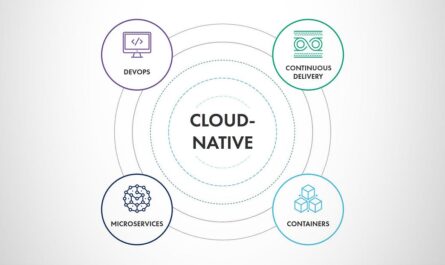Smart Cities: The Future of Urban Development
Global urbanization has led to increasing strains on resources and infrastructure in cities around the world. To tackle these challenges and build more livable, sustainable and resilient cities, governments and organizations are advocating for the development of “Smart Cities”. While there is no single definition, Smart Cities rely on digital technologies and data to enhance performance and livability, while reducing resource consumption and costs. Let’s examine in more detail the key features and benefits of Smart Cities.
Integrated Infrastructure and Services
A core concept of Smart Cities is the integration of physical, digital and institutional infrastructure to deliver coordinated and efficient services to citizens. This involves upgrading transportation systems, energy grids, water networks and buildings to digital platforms that can communicate with each other. For example, transportation systems can share real-time traffic data to route vehicles more efficiently or detect and address congestion automatically. Utilities can monitor energy and water usage in real-time to optimize distribution and reduce wastage. Buildings can automate heating, cooling, lighting and security with wireless sensor networks. Such integrated infrastructure enables centralized monitoring and control over city operations to improve living standards.
Citizen Engagement and Services
Engaging and empowering citizens is a vital focus of Smart Cities. Advanced ICT platforms and mobile/web applications allow citizens to access a wide range of municipal services anytime, anywhere. Services like utility bill payments, applying for licenses and permits, booking appointments, filing complaints or queries can all be done online conveniently. During emergencies, early warning systems use social media and mobile alerts to ensure swift evacuation. Pervasive wireless connectivity in public spaces also improves access to information for visitors. Governments are experimenting with open data initiatives to crowdsource solutions from citizens on urban governance. This promotes transparency and citizen participation in local decision making.
Sustainable Resource Management
With growing demands straining limited resources, Smart Cities emphasize optimizing consumption through digital tools and policies. Intelligent metering of utilities enables more accurate demand forecasting and reduction of non-revenue water or power losses. ‘Smart’ streetlights, traffic signals and buildings minimize energy usage through automated controls and sensors. Renewable energy generation is also being scaled up through roof-top solar panels and micro-grids. Integrated waste management systems apply RFID, GPS to optimize collection routes. Advanced recycling plants extract maximum value from waste. Meanwhile, environmental monitoring networks and smart land-use planning help preserve green cover and biodiversity within cities. These initiatives boost sustainability of urban development.
Improving Mobility and Transport
Transport is a major contributor to urban congestion, pollution and resource use. Smart Cities leverage ICT for revolutionizing mobility systems. Intelligent Transport Systems apply sensors, telematics and satellite navigation across modes for improved coordination, safety and traffic management. Public transit is augmented by shared mobility services and transportation demand management tools. Electric vehicles are also being promoted through public charging infrastructure networks. Meanwhile, pedestrian-friendly zones encourage walking and cycling. Real-time passenger information systems connected via mobile apps help optimize use of multi-modal mass transit networks. The result is more affordable, eco-friendly and reliable mobility for all.
Boosting Economic Growth and Livability
Smart City capabilities are transforming cities into innovation hubs attracting skilled workforce and investments globally. Ultra-high-speed broadband connectivity enables growth of digital industries and startups. Data driven policymaking supported by open platforms further improves ease of living and doing business. Smart urban public spaces and amenities enhance quality of life for citizens. Digital empowerment also enables distributed work models blending work and life seamlessly. Such upgrades create new jobs across technology sectors while retaining talent. Smart cities are generating huge economic opportunities for both large corporations as well as SMEs and entrepreneurs in diverse fields of hardware, software, consultancy and services. This drives overall GDP growth and competitiveness of cities.
Securing Infrastructure and Services
Networked smart city infrastructure handling huge volumes of sensitive data also introduces fresh cybersecurity risks that need addressing proactively. Strong authentication and access controls are required across management systems to prevent cyber-attacks compromising operations. Surveillance and monitoring technologies deployed for public safety also warrant data privacy safeguards to allay fears of 24/7 snooping. Robust oversight processes are essential to ensure responsible and ethical application of smart technologies respecting civil liberties. Overall, balancing security, safety and privacy across digital operations remains a key challenge yet critical for sustainable smart city development. With diligent planning and implementation, these risks can be contained while reaping benefits of smart urbanization.
As cities worldwide grapple with spiraling demands, the smart city model presents an appealing proposition to enhance sustainability, inclusion and prosperity for communities. While implementation hurdles remain, the disruptive potential of digital technologies can revolutionize infrastructure, services and quality of life drastically when combined with progressive policymaking. When carefully planned with emphasis on citizen participation, smart cities could pave the way for more equitable and eco-friendly urban development worldwide. Their success in coming years will define the pathway for transforming humanity’s future urban habitats and landscapes.
Note:
1. Source: Coherent Market Insights, Public sources, Desk research
2. We have leveraged AI tools to mine information and compile it




